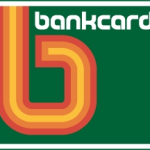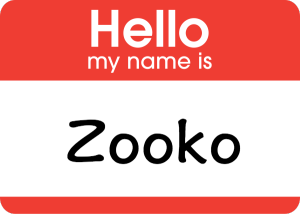http://youtu.be/IP0jCjyrew8
Which came first – Credit Cards or the Australian Dollar
 At the regular Sydney Bitcoin meetups recently I asked a group of fellow Australians which they think came first – the credit card or the Australian dollar?
At the regular Sydney Bitcoin meetups recently I asked a group of fellow Australians which they think came first – the credit card or the Australian dollar?
Knowing most of them (like me) were born after the Australian dollar was introduced in 1966, I thought they might be surprised, if they didn’t already know, how early an invention credit cards were.
The introduction of the Australian Dollar was a metric move, replacing the Australian Pound, shillings and pennies with a catchy ditty and public information campaign. It’s so weird to watch in the 21st century but it really invokes the idea of fear of change (no pun intended).
According to this page on the history of Credit Cards this familiar technology is an invention from the 1950s or earlier. Depending on how you interpret my question, you can say that credit card are newer or older than the Australian dollar. The way I intended it, however was not the local introduction of an Australian credit card, just the invention of the credit card product.
American Express was available in Australia prior to 1966 but it was probably not very widely accepted or held there. The introduction of Australia’s first local brand credit card, BankCard occurred in 1974. I remember my parents wondering and asking merchants if they accepted BankCard and the frequent chuckle response “no.” Just like is common today with Bitcoin.
Who cares?
The relevance of my question was really to highlight that credit cards are a product of an earlier era. It was an invention used to solve a problem in a time before the internet, mobile phones and personal computers – even before commercial TV. It’s poorly suited to the internet era. Credit card transaction data is not even encrypted as it travels over the wires from the merchant to the bank. Also, currencies tend to be a lot newer and have much shorter lifespans than we might imagine. I learned a lot about this reading this challenging article: Five Things you Need to Know about The Economy
What are your thoughts?
Big Week in Bitcoin Events for Sydney
 For those of you who slapped your knee in frustration and missed a previous Sydney Bitcoin Lunch, suggesting I write more reminders… here it is!
For those of you who slapped your knee in frustration and missed a previous Sydney Bitcoin Lunch, suggesting I write more reminders… here it is!
So much has been going on in Bitcoinland and next week is a big one.
 This Tuesday July 22nd is your favourite and most nutritious Bitcoin project discussion, Sydney Bitcoin Lunch. If you’re not already a member of the Meetup, fix that now (it’s free) and we’ll see you over some great pub Thai at The Slip Inn.
This Tuesday July 22nd is your favourite and most nutritious Bitcoin project discussion, Sydney Bitcoin Lunch. If you’re not already a member of the Meetup, fix that now (it’s free) and we’ll see you over some great pub Thai at The Slip Inn.
Second, Caroline McLaren’s Future of Money event is on Wednesday evening where I’ll be on a panel with Jason Williams, President of the Bitcoin Association of Australia and Chris Guzowski, CEO and Founder at Australian Bitcoin ATMs. It’s being held at a unique new space called The Porter, a luxurious example of modern multipurpose design.
For more multisyllabic effusion: The Porter. You want to register for this event.
Rounding out the week, the much anticipated international conference, Cryptocon comes to town with a big programme filling Thursday and Friday and featuring a number of high profile speakers. I’ll also be presenting on the topic of Distributed Identity, one of the most essential and urgent non-monetary uses of Bitcoin’s disruptive blockchain technology. If you are interested in Bitcoin do not miss this conference.
As always, hit me up with questions any time. @blockzombie
Bank Innovation
 Q: You have a bank branch in a prime city location. What do you do to address the real concerns of your customers in a world of rapid innovation and financial uncertainty?
Q: You have a bank branch in a prime city location. What do you do to address the real concerns of your customers in a world of rapid innovation and financial uncertainty?
A: A “cash grab” booth:
Names, Cocktail Parties and Triangles
I was recently asked what the number one problem that I believe Bitcoin will solve by the end of 2015.
Prediction is very difficult, especially about the future (as physicists say to a round of hearty guffaws at Danish cocktail parties).
Remittance to the developing world is an obvious first consideration but I suspect it’s harder than it looks and perhaps it will be “solved” continuously and incrementally. So, for me the big one is decentralised identity management. It’s big.
 When you look at all the “Bitcoin 2.0” projects; the metacoins, decentralised exchanges, crypto-equities, and the menagerie of financial instruments and markets, one problem emerges at the root: identity. We already rely on many identity systems but they all involve an entrusted third party. For decentralised, zero-trust consensus networks backed by blockchains, identity must also be decentralised or it will be the weak link.
When you look at all the “Bitcoin 2.0” projects; the metacoins, decentralised exchanges, crypto-equities, and the menagerie of financial instruments and markets, one problem emerges at the root: identity. We already rely on many identity systems but they all involve an entrusted third party. For decentralised, zero-trust consensus networks backed by blockchains, identity must also be decentralised or it will be the weak link.
Namecoin is an early recognition of this need and a valiant attempt to tackle the problem of names but strategic weaknesses in the implementation and a lack of dedicated project support raised doubts as to whether Namecoin was a viable solution. More recently, Namecoin has seen a revival and there are several other projects such as Keyhotee that attempt to enable a strong identity management system where people can create and build a reputation that is attached to a globally unique profile that they fully control.
The necessity and potential for such a system is high across almost every significant project in the crypto space. Controlling one’s identity information is a cornerstone of privacy. Avoiding scammers and impersonators is crucial to managing counter-party risk.
What’s more, if the invention of Bitcoin enables a solution to this problem, then it will not only have solved The Byzantine General’s Problem, but also unravelled another impressive cryptographic enigma: disproving Zooko’s Triangle. That’s two dazzling cocktail party conversation topics for the price of one!
Bitcoin and Digital vs Virtual Currency
The funny thing is, “real money”, the dollars or euros we use every day are not very real at all. They are to real hard cash what virtual reality is to … reality. They don’t really exist, but you can pretend they do… up to a point.
People keep calling Bitcoin virtual but it’s not. Bitcoin is digital money, it is defined by software. Transactions and balances are represented on computers in digital form. But with bitcoin, money is very real.
Bitcoin has a defined schedule for minting new currency which cannot be altered, not even if it seems like a good idea to policy makers and economists. Bitcoin cannot be created by banks as they do with fiat currency when you make a deposit and they lend the same money out.
It doesn’t really matter that people call Bitcoin “virtual” when it’s not, but it’s so ironic that the more familiar fiat currencies are the true virtual currencies when they can be counted multiple times.
I’m not saying that fractional reserve banking or monetary policy is evil, I’m not a dyed-in-the-wool Austrian economist. I’m just saying that these things are what make money into a chimera, a hallucination or a dream and we can have a sudden rude awakening if suddenly people lose faith or too many debts get called in.
Virtual memory in a computer is not real memory, but it can be treated as if it were. Same with virtual disks, virtual machines, etc. Banks turn debt into money but it is only virtual money. You find the difference important during a bank run. What is a run on the bank but a direct effect of overzealous double dealing?
If Information Wants To Be Free Then So Does Money
If Bitcoin wants to be legitimate, then it’s going to have to pull its socks up!
Are you sick of hearing this?
Being a BlockZombie and never being able to get enough blockchain Bitcoin info, the Bitcoin UK podcast recently caught my ear.
The production is good and the host, Freya Stevens is knowledgable, well spoken and easy to listen to. The content is also pretty good and I’ll keep listening! The format so far contains plenty of interviews with experienced Bitcoin people from the UK.
What struck me about the interviewees featured in episodes 3 and 4 is the pervasiveness of a strong prescriptive sentiment on the topic of regulation and what seems to be an over-confidence in the impact of legislators in specific jurisdictions, notably the UK. While there are plenty of points to be made in this vein, I consider the effective influence of regulators on Bitcoin to have been overstated and the potential “damage” to the “success” of Bitcoin greatly exaggerated. I’ve also heard this kind of argument a lot elsewhere.
On the podcast, two or three of the interviewees demonstrate way too much faith in the influence of regulators and insufficient appreciation of the magnitude of forced change Bitcoin already represents. Disruptive technology is going to cause disruption and we’ve barely seen the beginning. It’s not just going to be a slightly better PayPal.
As with the internet, no matter how desirable or how many of us nice people agree that it is right and proper for all published content on the internet to meet our reasonable standards, censorship of the internet has been an unequivocal and resounding failure around the globe, not just in the UK but in China, Syria, Venezuela and Turkey where desperate and otherwise damaging measures are taken.
Having probably forgotten and mostly abandoned rhetoric about forcing “publishers” on the internet to be licensed and to “take down” objectionable content and pirated copyrighted works, polite society maintains a flimsy facade online hoping to avoid conversations about illicit material, presumably until the internet censorship wagon is again, pointlessly, wheeled out to placate the odd media mogul or facilitate a quick game of political football.
Let’s reflect on this: Bit Torrent traffic is one out of every six bytes online.
Forget the vast uncountable blobbybytes of pirated stuff on the web, or the hidden web, just consider bit torrent. While, yes, it’s also used for legitimate stuff, you’d have to admit publishing on the internet is so utterly unregulated and ubiquitous it’s hard to even know what publishing is anymore. It doesn’t matter whether you think that’s good or bad, it’s reality.
The fact remains, as one of the podcast guests declared, most of the world’s economy, both in dollars and in people, is in contravention of regulations. It’s the black market, the grey market, the shadow economy, System D. Funny thing is, he said this in the very next breath after declaring how Bitcoin must be regulated. In fact, there is plenty of evidence to suggest that, as with The Streisand Effect, making hard regulations against large populist forces only adds fuel to the fire. As with “The War on Drugs” regulations can result in increased financial pressures that drive prices up and create lucrative yet untaxed money flows for organised crime that would otherwise not exist.
I’m not saying that there ought not be regulation. Let’s say we agree that there ought to be! The fly in the ointment is that pesky reality that Bitcoin the currency will not stop what it is doing, look up and heed the wagging finger of an officious, disapproving, bespectacled bowler hat! People may heed it, but only to the extent that the benefits of Bitcoin are not worth the hassle with the law, and then only in that particular jurisdiction. Think globally, add a little bit of imagination and vision about the near future of decentralised blockchain technologies and one can expect hasty, ill-conceived regulations being met with mass, casual non-compliance and being dismissed as an embarrassing and unenforceable anachronism like so many of the world’s stupid laws.
In many people’s eyes, Bitcoin may need regulation in order to obtain “legitimacy”, however – and this is going to be a bitter pill – in practice, regulations too are going to have to seek legitimacy from Bitcoin.
My prediction is we will see a two-sided negotiation between those who have a huge amount to gain from Bitcoin and those who have a huge amount to lose. Will we meet in the middle? Only if it’s an even match of relative power.
The thing is, if zealots like me are even half right about the scale of Bitcoin’s impact on this world, we all have a lot more to gain than even the considerable profits that the legacy financial sector stands to lose. Over-reaching regulation will simply divert the flow of Bitcoin’s benefits to less constrained countries and, of course, to System-D.
Let’s also remind ourselves that information is flowing faster and more freely than ever. Ask the NSA how easy it is to keep their secrets from leaking. Regulations are going to have to grapple with a very different reality than the one from the 20th Century. In the 21st Century the Bitcoin genie is out of the bottle. If distributed cryptocurrencies are not transformative enough to cause this kind of impact, then Bitcoin doesn’t deserve to even be called a disruptive technology.
We shall see. The way I see it, if information wants to be free, then so does money.
Expect Poor Imitations
Do you remember when the internet started to become part of the general public’s awareness? The jokes, the way people would throw in a emphatic “dot com” suffix to any phrase that was worthy for being tainted with nerd stink. Throughout the 90s there were a growing number of TV ads which made use of the spritely little mouse pointer to indicate, variously, a kind of with-it technical currency and to lend computer literacy to a product or brand.
As it became gradually apparent that the dot com bubble bursting of 2000 was not the end of that horrible digital blight on the cultural landscape as some sneering curmudgeons gleefully declared from the sidelines, the web 2.0 style of snazzy sliding transitions that came with a generation of tenured professional web design further influenced the styling of everyday media. And it wasn’t just the surface design, either. The on-demand rapid turnaround and borderless characteristics of the web set people’s expectations of services offline.
The internet started setting the agenda.
Likewise, as Bitcoin adoption grows, you should expect to see more and more attempts by marketing to cash in on cryptocurrency’s growing reputation, seeming somehow like Bitcoin by copying recognisable surface cues – QR codes, “coins” and “bits” and any adjacent term they can find.
Expect lookalikes and rip-offs. No I don’t mean altcoins. There are already plenty of altcoins and they are, for the most part, just as revolutionary and capable of disrupting the legacy financial system if Bitcoin fails. These impostors are not open-source distributed cryptocurrencies but store credit points systems, loyalty programs, lotteries and contests or, private centralised currencies, or even scams and schemes.
If the price of Bitcoin enters another bubble run, taking it significantly above the previous all time high, we will see a rash of these imitators, following the inevitable flood of gold rush headlines.
Take this example. On a “Weet Bix” cereal box in Australia. Note you can “Scan the QR Code every day to collect more Bix”. Never mind that the whole offer had expired well before I bought the box and yes the expiry date of the food is still about a year off. Note that “Bix is like tradeable currency” except for the little detail that you can’t trade it at all – you can only exchange it for “stuff”. It’s basically a cereal box competition trying to look like that bitcoin thing the kids are talking about these days.
Bitcoin-Obsessed Block Zombie
Is that you with red, drowsy eyes from all-night Bitcoin research, obsessively consuming all available cryptocurrency info, boring everyone around you to death while moaning, soullessly blockchains… blockchains! Yes? Then you too are a Block Zombie.
How did this happen?
Prior to “infection” you were probably like most other humans. On discovering Bitcoin and other blockchain technology, people dismiss it as yet another cute technical theory. A skeptical view presumes that any software solution to a problem of real world economics cannot avoid being crushed by the might of large central banks, corporate financial institutions and nation states, doubly so for a community-driven project. Alternative currencies aren’t even new. Leading the skeptics are those who have seen this movie before. Maybe a starry-eyed idealist could accept the theory, but only the very youngest and most naive would dare think that such preposterous upstarts could be allowed to flourish for long. Surely such unruly schemes would be shut down before they reach a useful scale.
It’s sensible to be skeptical.
Technology is full of spin and snake-oil. Add abstract economics to the mix and highly charged topics like illicit underground markets, peer-to-peer internet sharing and a whiff of “get rich quick” hyperbole and you have combination that would cause strong warning signals from anyone’s pattern-matching intuition.
The skeptic resists accepting the improbable until there are enough compelling reasons to believe it. So at some point, skeptics need to get educated. If you do the homework, you become ripe for Block Zombie infection.
After scratching the surface of the blockchain, the courageous skeptic discovers a deep and compelling world of open possibility beneath. Incredibly the cryptocurrency world bears little resemblance to the often confused and contradictory reports from an equally confused press. Perhaps it’s not just a den of thieves and Ponzi scammers, illicit markets and tulip mania. Once your mind is open, questions flood in. How can it work? Who controls it? What could cause it to fail? Each answer raises further questions, but it appears increasingly solid.
At some point in the discovery of bitcoin the penny drops. This is a big deal. It’s a much bigger and more important than it seemed at first. It’s a paradigm shift.
Bitcoin has a steep learning curve. Every insight reveals an even greater potential, most remarkable of all is how far into that future possibility today’s bitcoin is already well prepared for. Another incredible realisation reported by many Block Zombies is that after reading about Bitcoin, one becomes aware just how poorly understood traditional money is!
Some people arrive at Bitcoin via a technological path. Others discover it via a path of finance or economics. Many approach Bitcoin with a political agenda such as American Libertarianism or “Anarchocapitalism”. Whichever way, the persistence results in the same undead infection, the same monstrous realisation that Bitcoin and blockchain technologies are a virtual tsunami that is approaching ill-prepared world economies, still dominated by 20th Century institutions. Its dangerous forces present the possibility of a massive increase in human potential, but not without heavy disruption, much like the internet itself.
Are you prepared for the Block Zombie apocalypse?



